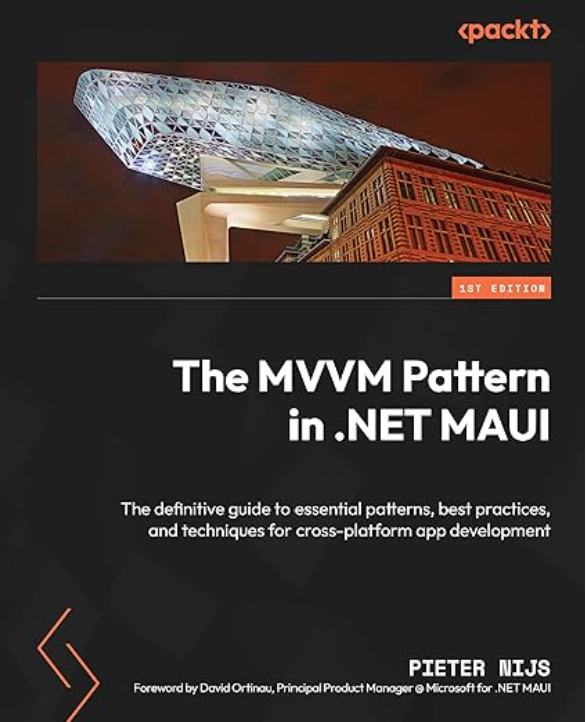Hello .NET Standard 2.0
A week or so ago, Visual Studio Preview 15.4 released and I was pretty excited about this! Why? Well, Visual Studio 2017 version 15.4 Preview brings first class support for developers targeting the Windows Fall Creators Update SDK preview. This Windows Fall Creators Update brings support for .NET Standard 2.0 to UWP which means we now have a set of 19k additional APIs we can acces (compared to .NET Standard 1.6).
And personally, I’m most excited about the SqlClient APIs.
SqlClient & UWP?
Yes! We now have access to the APIs that live in the System.Data.SqlClient namespace, meaning we can now access Sqlserver databases directly from within our UWP app. This is yet another step in the direction of making UWP a good fit for LOB applications. Countless LOB applications have been written in the past that use Sqlserver Express on the client to store data locally.
Show me how
At the moment of writing, the Windows Fall Creators Update SDK is still in preview, so you have to download it from here. The same thing goes for Visual Studio 15.4 which you can find here.
First, create a new UWP project and select Windows 10 Insider Preview (10.0; Build 16267) as Target Version and Minimum Version.
 Once this is done, we can use the SqlClient APIs just like we’ve always been doing in WPF or WinForms.
Once this is done, we can use the SqlClient APIs just like we’ve always been doing in WPF or WinForms.
And what better way to demo this using the Northwind DB? 🙂
But first, some UI
A very simple UI with a TextBox, a search Button and a ListView to show the results. Also provide a loading message while the app is querying the database.
<Page
x:Class="SQLserverDemoUWP.MainPage"
xmlns="http://schemas.microsoft.com/winfx/2006/xaml/presentation"
xmlns:x="http://schemas.microsoft.com/winfx/2006/xaml"
xmlns:d="http://schemas.microsoft.com/expression/blend/2008"
xmlns:mc="http://schemas.openxmlformats.org/markup-compatibility/2006"
xmlns:models="using:SQLserverDemoUWP.Models"
xmlns:conv="using:SQLserverDemoUWP.Converters"
mc:Ignorable="d">
<Page.Resources>
<conv:BoolToVisibilityConverter x:Key="boolToVisibilityConverter" />
</Page.Resources>
<Grid Background="{ThemeResource ApplicationPageBackgroundThemeBrush}">
<Grid.RowDefinitions>
<RowDefinition Height="Auto" />
<RowDefinition Height="*" />
</Grid.RowDefinitions>
<Grid.ColumnDefinitions>
<ColumnDefinition Width="*" />
<ColumnDefinition Width="Auto" />
</Grid.ColumnDefinitions>
<TextBox Text="{x:Bind ViewModel.SearchString, Mode=TwoWay, UpdateSourceTrigger=PropertyChanged}" />
<Button Grid.Column="1" Content="Search in Northwind"
Click="{x:Bind ViewModel.OnSearch}" />
<StackPanel Grid.Row="1" Grid.ColumnSpan="2">
<TextBlock Text="{x:Bind ViewModel.ResultText, Mode=OneWay}" />
<ListView ItemsSource="{x:Bind ViewModel.Result, Mode=OneWay}">
<ListView.ItemTemplate>
<DataTemplate x:DataType="models:Product">
<StackPanel>
<TextBlock Text="{x:Bind ProductName}" FontWeight="Black" />
<TextBlock Text="{x:Bind QuantityPerUnit}" FontStyle="Italic" />
<TextBlock>
<Run Text="{x:Bind UnitPrice}"/><Run Text="$" />
</TextBlock>
</StackPanel>
</DataTemplate>
</ListView.ItemTemplate>
</ListView>
</StackPanel>
<Grid Grid.ColumnSpan="2" Grid.RowSpan="2" Background="White"
Visibility="{x:Bind ViewModel.IsLoading, Converter={StaticResource boolToVisibilityConverter}, Mode=OneWay}">
<StackPanel VerticalAlignment="Center">
<TextBlock HorizontalAlignment="Stretch" TextAlignment="Center" VerticalAlignment="Center" TextWrapping="WrapWholeWords">
<Run Text="Searching Northwind for '"/><Run Text="{x:Bind ViewModel.SearchString, Mode=OneWay}" /><Run Text="'..." />
</TextBlock>
<ProgressRing IsActive="{x:Bind ViewModel.IsLoading, Mode=OneWay}" />
</StackPanel>
</Grid>
</Grid>
</Page>
public class MainPageViewModel : INotifyPropertyChanged
{
readonly NorthwindRepository Repository;
private string _SearchString;
public string SearchString
{
get { return _SearchString; }
set
{
if (_SearchString != value)
{
_SearchString = value;
RaisePropertyChanged();
}
}
}
private List<Product> _Result;
public List<Product> Result
{
get { return _Result; }
set { _Result = value; RaisePropertyChanged(); }
}
private bool _IsLoading;
public bool IsLoading
{
get { return _IsLoading; }
set
{
if (_IsLoading != value)
{
_IsLoading = value;
RaisePropertyChanged();
}
}
}
private string _ResultText;
public string ResultText
{
get { return _ResultText; }
set
{
if (_ResultText != value)
{
_ResultText = value;
RaisePropertyChanged();
}
}
}
public MainPageViewModel()
{
Repository = new NorthwindRepository();
}
public async void OnSearch()
{
try
{
IsLoading = true;
Result = null;
Result = await Repository.SearchProducts(SearchString);
if (Result.Any())
ResultText = $"Results for {SearchString}:";
else
ResultText = $"Search string '{SearchString}' returned no items";
}
catch (Exception)
{
//ToDo
}
finally
{
SearchString = null;
IsLoading = false;
}
}
public void RaisePropertyChanged([CallerMemberName]string property = null)
{
PropertyChanged?.Invoke(this, new PropertyChangedEventArgs(property));
}
public event PropertyChangedEventHandler PropertyChanged;
}
Now, query all the things
For this demo I’ve built a Northwind repository with just one method: Search. In this method we are just using the SqlClient APIs that we know. We define our query, make a connection to the DB, pass in the query parameter in the SqlCommand and finally execute the command. Once we get the result back, we make an instance of a Product for each line and return them.
public class NorthwindRepository
{
private readonly string connectionString =
@"Server=localhost\SQLEXPRESS;Database=Northwind; User Id=me; Password=mypsswd";
public async Task<List<Product>> SearchProducts(string query)
{
return await Task.Run<List<Product>>(() =>
{
List<Product> result = new List<Product>();
string queryString =
"SELECT ProductName, UnitPrice, QuantityPerUnit "
+ "FROM dbo.products "
+ "WHERE ProductName like '%' + @query + '%'"
+ "ORDER BY ProductName DESC;";
using (SqlConnection connection = new SqlConnection(connectionString))
{
SqlCommand command = new SqlCommand(queryString, connection);
command.Parameters.AddWithValue("@query", query);
try
{
connection.Open();
SqlDataReader reader = command.ExecuteReader();
while (reader.Read())
{
result.Add(new Product
{
ProductName = reader.GetString(0),
UnitPrice = reader.GetDecimal(1),
QuantityPerUnit = reader.GetString(2)
});
}
reader.Close();
}
catch (Exception)
{
throw;
}
return result;
}
});
}
}
In the above code, you’ll notice that I’ve surrounded it all with Task.Run. I do this because the SqlClient APIs aren’t async. But methods like ExecuteReader can take long to process. In order to keep our UI responsive, I’ve put this all inside a Task so I can use the async/await pattern.
That’s all, folks
Aaah, we can finally -with UWP implementing .NET Standard 2.0- use the SqlClient APIs (and others). This really opens up the potential of UWP for LOB app even more! I like it!
You can find the code of this blogpost on my GitHub.




October 11, 2017 at 10:48 pm
The full release of Fall Creators Update doesn’t recognize SqlConnection. I also cannot successfully add a reference to System.Data.SqlClient. What am I missing here?
October 12, 2017 at 7:30 am
Hi William,
I didn’t try out the release version yet. Will try it asap and will let you know. I wouldn’t expect any issues on this to be honest, but I’ll post my findings here as soon as I’ve tested it on the release version.
Pieter
November 3, 2017 at 5:49 am
Hi Pieter,
I installed Windows Fall Creator Update and Visual Studio 2017 15.5. I too am not seeing any option to sue SQLClient. System.Data has only Common lib and there is nothing in references either. Not only that but Windows Template Studio too stopped working.
Look forward to your findings.
Thanks
Harshad
November 3, 2017 at 3:43 pm
Quick Update:
When I upgraded VS2017 to 15.5, I did not realize that it actually installed parallel to old install. I invoked VS using my pinned shortcut (ie old version of VS) and hence it did not support SqlClient. I then found out that there is VS2017 15.5 PREVIEW. Started that and it DOES support SqlClient. I have not tested it further though. But at least SqlClient is available in UWP now.
November 3, 2017 at 5:40 pm
And it works with only those projects that do not use any framework or template – eg MVVM Light or any template from Windows Template Studio.
May 20, 2018 at 2:49 pm
To those who have problem referencing System.Data.SqlClient…
I had the same problem.
The culprit seems to be that when you upgrade the min target version to 16267 it doesn’t automatically upgrade the Universal Windows Platform reference.
I discovered that by manually comparing the lines of my upgraded project to a new project that was built for 16267 from the start.
The new project had this inside:
6.0.6
The upgraded project had this instead:
5.0.0
As you can see even after targeting 16267 it still used the old UWP reference version 5.0.0 which lacks System.Data.SqlClient.
So open your csproj file with notepad, change 5.0.0 to 6.0.6 and it should work (If it still doesn’t work delete everything in the bin and obj folders).
As to why it keeps the old reference I’ve no idea and i would love an explanation from Microsoft.
May 20, 2018 at 2:51 pm
for some reason the csproj lines are not displayed in my comment above. Go to the PackageReference line
December 4, 2018 at 3:03 am
Great App 🙂 much helpful
December 4, 2018 at 5:09 am
Great Codes Indeed
February 7, 2019 at 6:56 pm
Very useful, I just getting started with UWP, I wish there were more resources concerning SQL server, I am currently struggling with 2 way databinding back to MS SQL using the MVVM model. Your user group looks very helpful, I wish I could make it t the APP development day!!
Thanks
Pete